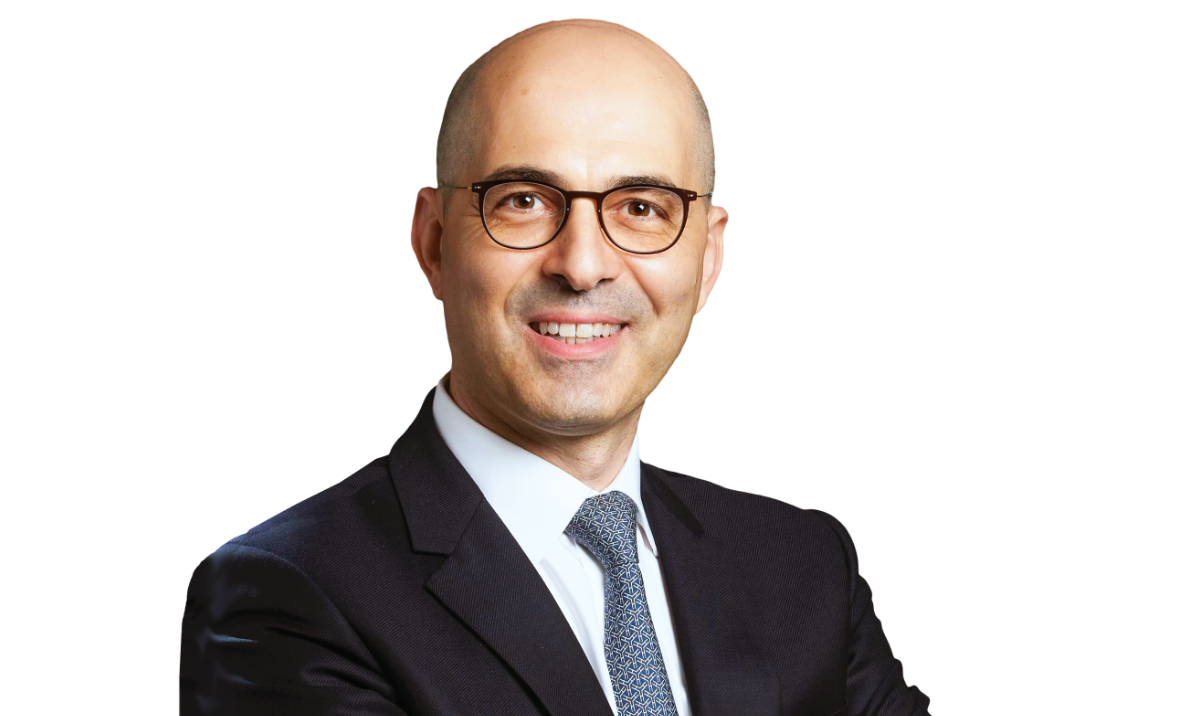RIYADH: In a short span of two years, Abdul Latif Jameel Health has successfully accelerated modern innovation to provide cutting-edge healthcare solutions to people who would otherwise not have access to it.
According to its CEO, the digitally enabled company is now focused on building a commercial platform to offer underserved populations products that are both impactful and transformative.
“Since most of the innovations happen far away in the US, Japan, or in Europe, which are the hubs of medical innovation, small companies would not initially come to our parts of the world,” Akram Bouchenaki told Arab News in an exclusive interview.
“However we, at Abdul Latif Jameel Health, are giving them a chance to very quickly broaden their footprint and immediately become a global organization with the benefit of having us as that one-stop shop organization that takes care of everything for them.”
He added: “We take the product, we register it with the local regulatory authorities, we do all the promotion, medical education to physicians and we also take care of pharmacovigilance and all the regulatory requirements. That’s really the model where we’re building with several companies.”
Innovative products
Illustrating his point of bringing innovative healthcare products to the market, Bouchenaki cites the example of a new handheld, ultrasound device from a company called Butterfly that they have introduced to the market.
It is the world’s only single probe, whole-body handheld ultrasound solution that connects to a cellphone, iPhone or Android, and then gives access to ultrasound imaging to users anytime, anywhere, and at a very affordable cost.
Healthcare providers can collect advanced imaging, perform rapid assessments, and guide critical procedures no matter where they are, and share those images seamlessly with doctors across the globe to help with reading and interpreting scans.
Fusing semiconductors, artificial intelligence, and cloud technology, the product is designed to dramatically expand the capabilities of practitioners working within and outside of hospitals in developed, underdeveloped, and remote areas.

The company has plans to steadily grow its presence in the Kingdom, the region’s largest healthcare market. (Shutterstock)
“This is a revolutionary type of device that we introduced in India and in several markets in the Middle East including Saudi Arabia, the UAE, Qatar, Kuwait, Oman, and Turkiye and now we are expanding to Egypt, Morocco, and other markets. It will transform the way people are diagnosed,” he said.
Bouchenaki added: “It is our mission to collaborate with sector disruptors, who question how healthcare services have always been delivered, and how billions of people in underserved communities can be served better.”
He then went on to give another example of a product that his company is getting ready to introduce with EQRx, a new type of pharmaceutical company based in Boston. “EQRx has developed innovative technologies and treatments at a fraction of the cost of what current cancer therapies cost,” Bouchenaki revealed. “Their approach is really to make innovation in oncology highly affordable.”
Abdul Latif Jameel Health has entered into a strategic collaboration with EQRx for the commercialization of two affordable novel lung cancer therapeutics to people across the Middle East, Africa and Turkiye.
These therapies will offer treatment to patients with advanced non-small cell lung cancer at a fraction of the cost of existing and traditional approaches.
“This agreement comes as we forge ahead in our mission to source, collaborate with, and fund innovators within the medical world that are re-examining how to improve the current healthcare landscape by disrupting existing methods,” said Bouchenaki.
Care medicine
Abdul Latif Jameel Health is keen on the development of care medicine, whereby the company is taking care to the patient as opposed to having a patient come to the hospital or the clinic.
“These interventions can have a high impact in large countries where there are remote locations,” Bouchenaki said.
He went on to cite the example of a device from a Japanese company called Melody International that will help in the maternal-fetal area to illustrate his point.

We’re looking at growth in terms of technology because we are really building this company as a digitally enabled company from the beginning.
Akram Bouchenaki, Abdul Latif Jameel Health CEO
“We are going to introduce this device that would be able to monitor fetus health in utero while they are in the mother’s belly and the mother’s uterine health remotely,” he said. The cloud-based mobile wireless fetal monitor platform will soon be introduced across selected markets in Asia, the Middle East, and Africa.
It is a convenient, smart, and highly portable remote mobile fetal monitoring device to assist in problematic or high-risk situations, enabling safer and more secure births for mothers.
Their integrated platform comprises a fetal heart monitor; a uterine contraction monitor; and a smart tablet device to see data in real time and connect to the internet.
Its effectiveness has been proven in a variety of clinical cases, including as a partial alternative to periodic medical checkups for pregnant women living in remote or isolated areas.
Key markets
Talking about Saudi Arabia, Bouchenaki said that it was critical for Abdul Latif Jameel Health to have a strong presence in the Kingdom as it is the largest healthcare market in the region by far.
“We have a team that is established in Saudi Arabia and we have an initial portfolio of products that we have brought to the Kingdom that we have registered and we’re getting ready to launch,” he explained.
He added: “We also have Japanese innovations that are already in the market like one for heart valve repair and another for post-stroke or post-trauma rehabilitation.”
Since Saudi Arabia is a key market for Abdul Latif Jameel Health, the company has plans to steadily grow its presence in the Kingdom.
Egypt, Bouchenaki said, is another very important market. “Like Saudi Arabia and Turkiye, we are also focusing on Egypt as we are looking at expanding in countries that have taken a very deliberate and proactive approach to the handling of public health issues,” he said.
“I’ve had a really good experience working in Egypt on their hepatitis C elimination program,” Bouchenaki continued. “It’s probably one of the first countries with such a high impact of hepatitis C and we’ll be able to eliminate the disease thanks to a very strong political commitment to fight this viral infection.”
With regard to the company’s outlook for the future, Bouchenaki said he saw Abdul Latif Jameel Health’s growth along three dimensions. “We see our growth in opening new territories and new markets,” he informed.
“We also see our growth in the expansion of our portfolio in terms of new disease areas — we’re looking at a number of spaces like rehab diseases, innovative surgical technologies, etc.”
“Lastly, we’re looking at growth in terms of technology because we are really building this company as a digitally enabled company from the beginning,” he added.
“The good news,” Bouchenaki concluded, “is that we don’t have a long history, so it allows us to leverage all the technology that is at our disposal today to have the fastest and most positive impact on the market.”














